Are Prokinetics for SIBO Useful for Gut Health and Motility?
If, When, and How to Use Prokinetics for SIBO Treatment
- What Do Prokinetics Do?|
- Prokinetics for SIBO|
- SIBO, Motility, and Autoimmunity|
- Inflammation and Dysbiosis|
- Diet and Lifestyle|
- When to Consider Prokinetics|
- Bottom Line|
- Recommended Products|
- Gut motility and SIBO may be related, but there’s debate as to whether motility issues cause SIBO or whether SIBO causes poor motility.
- Either way, prokinetics are potentially useful pharmaceutical and natural agents that can help the gut to be less sluggish and work more efficiently.
- The best context for using prokinetics in SIBO is as part of an overall gut healing program that addresses underlying gut dysbiosis and inflammation (both of which can cause low motility).
- By using a holistic approach, many patients will be able to address their SIBO symptoms without the use of prokinetics.
When you have SIBO, especially if it’s accompanied by a whole lot of unpleasant gut symptoms, you might feel like you’d do anything to feel better faster.
Antibiotic treatment followed by prokinetics for SIBO is one treatment combination that’s sometimes offered as the easy solution. However, as with most gut-related health issues, there’s rarely a quick fix.
In this article, we’ll look at the role of prokinetics for SIBO and what they can and can’t do for the condition and other gut issues.
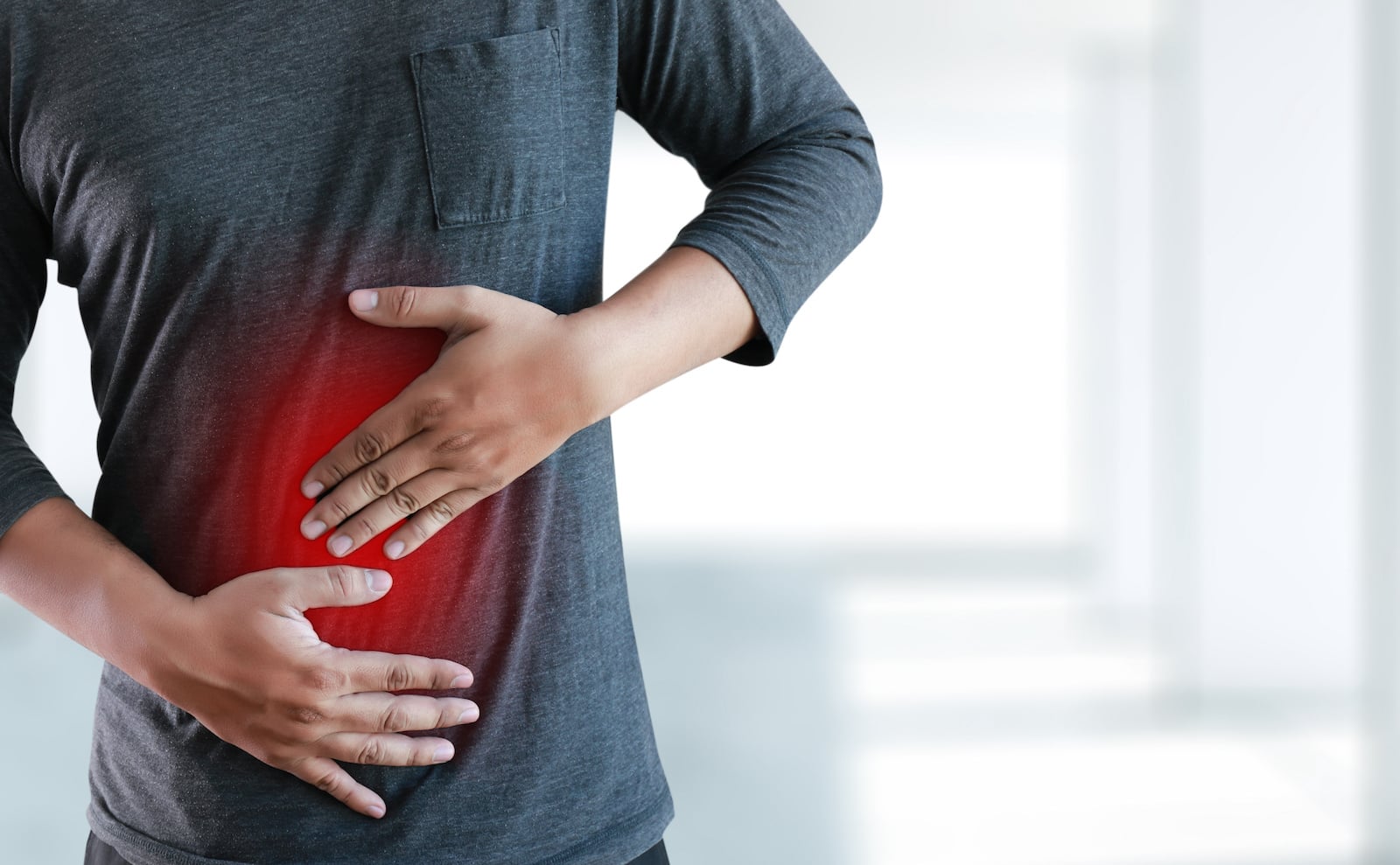
What Do Prokinetics Do?
Prokinetics are medications or herbal supplements that improve the motility of the gastrointestinal system. Motility is how quickly and efficiently food is moved through the gut.
Two key aspects of gastrointestinal motility are [1, 2]:
- Peristalsis: the downward contractions of the GI tract that occur when it has food in it
- The migrating motor complex: A wave-like motility pattern stimulated by the hormone motilin that works between meals, when the digestive tract is empty.
Prokinetic medications and natural prokinetics increase downward movement, which can help in conditions where gut motility is abnormal, such as chronic constipation, constipation dominant irritable bowel syndrome (IBS-C) and SIBO.
Prokinetics for SIBO

In SIBO, gut bacteria proliferate in the small intestine rather than the large intestine (ie, higher up the digestive tract than they should).
Many potential factors can cause or contribute to SIBO. One hypothesis is that slowed gastric emptying and reduced small intestine motility increase SIBO risk because gut contents sit around longer, allowing bad bacteria and fungi to grow [3].
It’s easy to imagine, then, how prokinetics might help in counteracting SIBO by flushing the contents of the gut downwards.
However prokinetics often aren’t always the right route for SIBO and IBS symptoms.
To begin with, while poor motility is one possible cause of SIBO, it’s likely that this problem only affects a small subset of individuals, so a treatment aimed specifically at improving motility may miss the boat for the vast majority of SIBO patients.
Even for those who do have slow motility, prokinetics might not necessarily address what’s causing that low motility: often, inflammation or gut dysbiosis.
Even where prokinetics could be helpful, a healthy diet and probiotics should be the first supports for SIBO that underpin any other treatments.
We’ll investigate a bit more where prokinetics might fit into a SIBO treatment plan later. But first, here’s an overview of both natural and pharmaceutical prokinetics and treatments that have been shown to have motility benefits for SIBO and IBS specifically.
Note that these treatments are listed in order of best and most available evidence (with the top treatments at the top). You’ll see that a number of natural treatments, such as probiotics and peppermint oil, may actually be more effective than the pharmaceutical alternatives. They also tend to cause fewer side effects.
| SIBO Treatment (reduced overgrowth, normalized breath tests) | IBS Treatment (reduced symptoms) |
| Probiotics | Low FODMAP diet |
| Rifaximin | Probiotics |
| Guar gum | Peppermint oil |
| Herbal antimicrobials | Curcumin |
| Elemental diet | Lubiprostone (pharmaceutical) |
| Low-dose erythromycin (pharmaceutical) | Iberogast |
| Octreotide/Sandostatin (pharmaceutical) | Melatonin |
| Mosapride (pharmaceutical) | |
| Berberine | |
| Glucagon-like peptide-1 | |
| Inositol | |
| Carmint | |
| Low-dose naltrexone (pharmaceutical) |
SIBO, Motility, and Autoimmunity
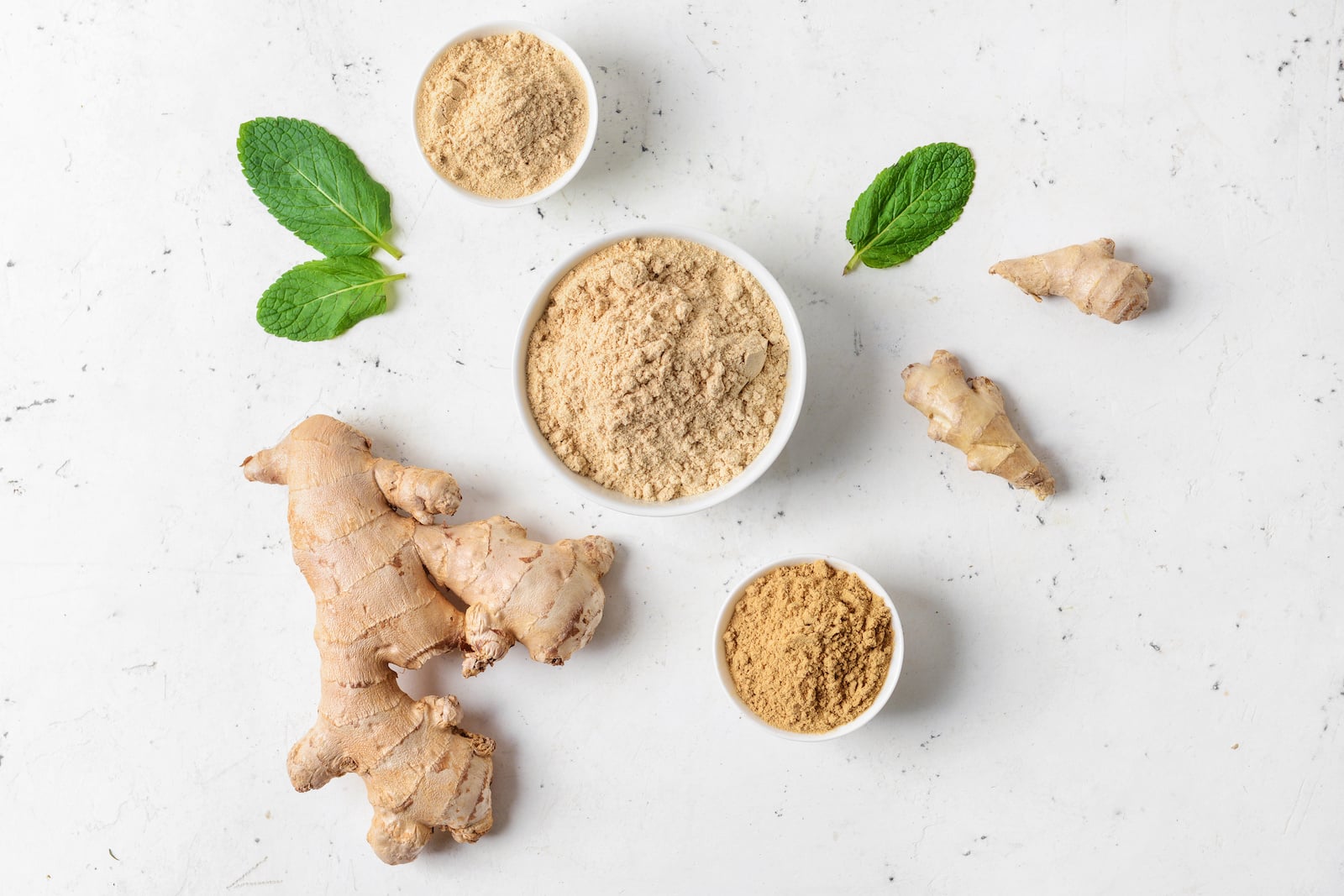
Gut motility issues, including faster or slower transit times, can result from an autoimmune problem occurring in the aftermath of an infection such as food poisoning, a stomach virus, or traveler’s diarrhea.
In this case, the immune system system can damage cells called interstitial cells of Cajal, which play an important role in regulating motility [4].
Testing for antibodies known as anti-CdtB antibodies and anti-vinculin antibodies can assess if this sort of immune damage has occurred. However, it is not something I tend to do routinely with my SIBO/IBS patients, as it isn’t always that informative.
For example, a 2017 observation study found that the presence of both these antibodies tended to predict IBS-D (diarrhea predominant IBS) reasonably well. However, 26.7% of people with IBS-C (constipation dominant IBS) also had the antibodies, as did 16.3% of people with no symptoms at all [5].
Similarly, a 2021 study found no statistical difference between the levels of anti-CdtB antibodies among those with functional GI disorders (including IBS) and healthy individuals [6].
Overall, it’s likely that the autoimmunity-driven dysmotility theory behind IBS and SIBO has been overstated.
The Role of Inflammation and Dysbiosis
While the autoimmunity hypothesis above suggests that dysmotility problems in the gut cause SIBO, there’s also some evidence that the other way round is true — ie, the gut bacteria imbalances and inflammation that come with SIBO cause gut dysmotility issues [7].
This is another reason why tackling inflammation and dysbiosis is so important for those with SIBO and IBS. For example:
- An observational study found inflammation to be a major driver of motility problems in inflammatory bowel disease (Crohn’s disease patients) [8].
- Studies in which gut biopsies are tested in the lab show that inflammation interferes with the ability of the human small intestine to contract properly [9].
- In patients with type 2 diabetes, the presence of SIBO has been associated with delayed gut transit, pointing to an association between gut microbial dysbiosis, GI dysmotility, and metabolic disorder [10].
Rather than hopping straight to prokinetics for SIBO or IBS, it’s therefore a good idea to deal with inflammation and gut bacteria imbalances and allow your gut motility apparatus (and your overall gut health) to repair naturally. This approach has worked best for most of my patients and fits with research that shows the interstitial cells of Cajal (ICC) —intestinal cells involved in healthy gut motility — can repair themselves in about 6 months even after significant autoimmune damage [11, 12, 13].
Diet and Lifestyle Alternatives to Prokinetics
The most effective approach to dealing with SIBO and IBS symptoms is a comprehensive gut healing program. Remember, prokinetics are not for everyone, and they cannot replace good nutrition and lifestyle habits.
The most important part, and the first place to start, is your diet. Giving extra support to your gut microbiome with the right probiotics will also help, as of course will a healthy, physically active lifestyle.
Let’s have a look at these one by one:
Healthy Eating (the Low FODMAP Diet)

Cutting down on inflammatory processed foods and sugar will help with gut symptoms almost straight away. Healthy whole foods such as vegetables, whole grains, and lean proteins are the basis of most healthy eating regimens that reduce inflammation and control blood sugar. But for SIBO and IBS in particular, the low-FODMAP diet may be most pertinent.
A low FODMAP diet cuts out specific troublesome carbohydrates that would otherwise feed the gut bacteria that cause gas and bloating. Low FODMAP diets have been shown to be very effective at improving SIBO and IBS symptoms [14, 15, 16, 17].
One review of 10 clinical trials found that the low-FODMAP diet resulted in several positive changes in the microbiome, and in overall gut health, including [14]:
- A less leaky gut
- Reduced inflammation
- Reduced histamine (a marker of an overzealous immune system)
An advantage of the low-FODMAP diet is that though it may be somewhat restrictive at first, as your SIBO improves, you should gradually be able to reintroduce and tolerate foods that were previously problematic.
Probiotic Support
To complement positive diet changes, adding a daily probiotic supplement is the next really useful step. Despite some reports to the contrary, probiotics are a safe, excellent and well evaluated treatment for SIBO [18].
For example:
- A meta-analysis summarizing 18 clinical trials concluded that probiotics are an effective treatment for SIBO. Specifically, probiotics reduced bacterial overgrowth and hydrogen concentrations and improved symptoms including abdominal pain [18].
- A pilot study found probiotics to be more effective than antibiotic treatment for SIBO [19].
- Another study found that probiotics work better in patients with both IBS and SIBO as compared to those who have IBS without SIBO [20].
A Three-Prong Approach

Research has observed that multi species probiotics work best, for example for alleviating IBS symptoms [21, 22]. Some of the best success we’ve seen in the clinic with SIBO patients has been when these three types of probiotics were administered at the same time:
- Lactobacillus and Bifidobacteria blend
- Saccharomyces boulardii (a beneficial yeast)
- Soil-based probiotics, usually Bacillus species
These three types of probiotics work together like the legs of a three-legged stool. If the stool only has one or two legs, it’s likely to be unstable. With three legs, the stool is able to stay upright.
Exercise
Physical activity is another important way to ensure healthy gut motility and beat constipation. Being on your feet and moving around tends to encourage proper gut contractions [23, 24, 25].
Each week, you should try to fit in 150 minutes of moderate or 75 minutes of vigorous exercise. This can be spread over several short (5-10 minute) bursts if you prefer.
There is also good evidence that exercise improves the bacteria in your gut microbiome [26].
When to Consider Prokinetics
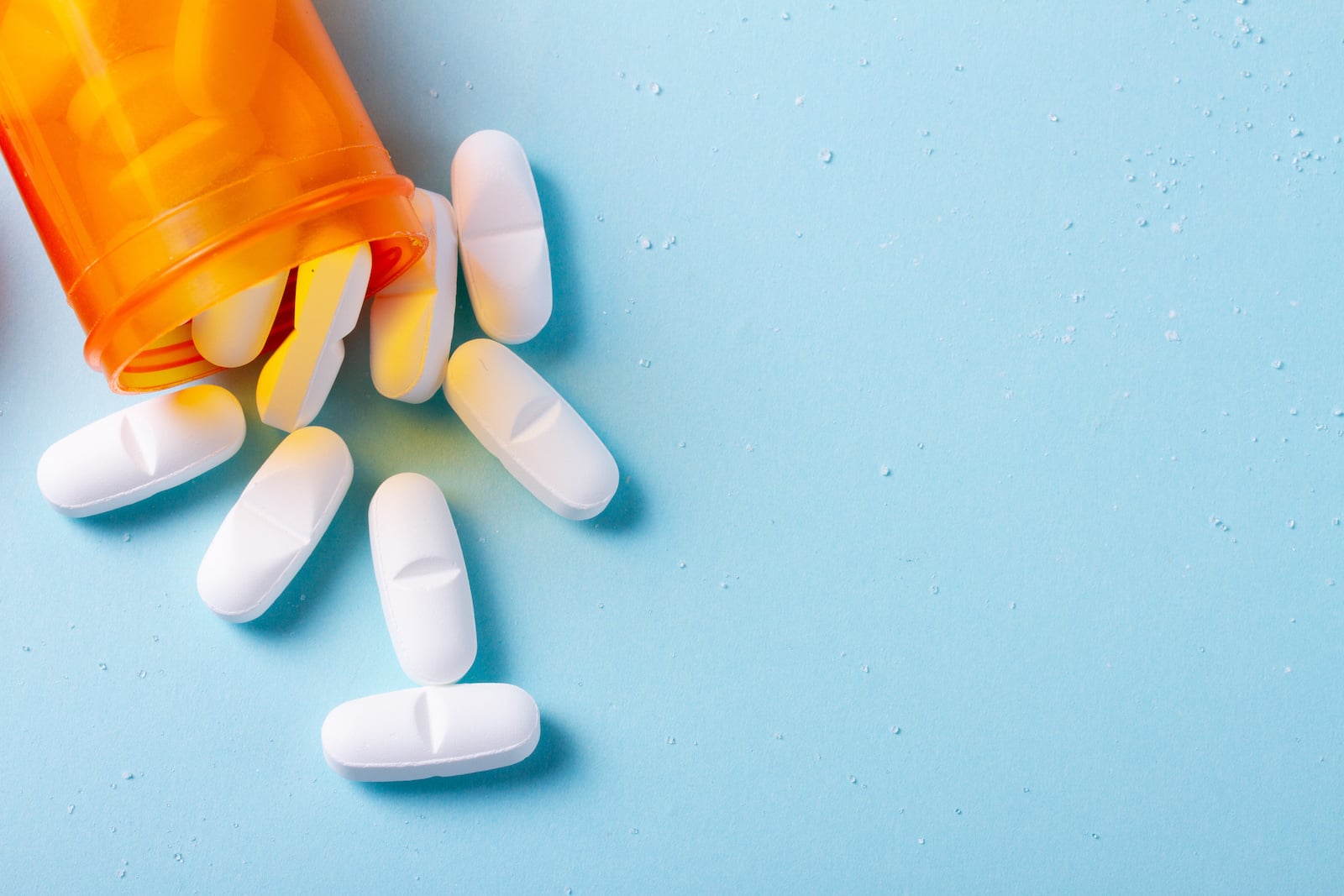
If some of your symptoms still remain after you’ve made diet and lifestyle changes and have been taking probiotics for a month or so, it’s time to consider other ways to support your gut.
In the phased protocol described in Healthy Gut, Healthy You, antimicrobials are the next logical step, with prokinetics something to consider after that.
Antimicrobials
Given the ability of antibiotics and antimicrobials (even natural versions) to blast bad bugs [27, 28], it might be tempting to opt for antimicrobials earlier on in your gut treatment pathway. However, lots of clinical experience and good practice guidelines from around the world suggest otherwise.
For example, the 2021 IBS treatment guidelines from the British Society of Gastroenterology and Romanian Society of Neurogastroenterology reflect that the treatment order should be diet, probiotics, and then antimicrobials [29, 30].
Antimicrobials that can help SIBO patients include the following:
- Rifaximin (a conventional antibiotic)
- Oregano
- Berberine
- Artemisinin
- Caprylic acid
You can work with a practitioner to find out which antimicrobial works best for you. If you decide this is Rifaximin, you’ll need a doctor’s prescription for this pharmaceutical antibiotic. However many patients prefer to work with natural antimicrobials, such as ginger, peppermint oil and other herbals, that can still have potent effects [28] but may be less likely to contribute to antibiotic resistance [31].
Prokinetics
The theory behind using prokinetics after antibiotics is that they help to maintain good motility and prevent bad bacteria from building up again. If you have SIBO-associated IBS-C (which tends to correlate with a positive methane breath test) you are likely a good candidate for prokinetics.
Evidence that supports the use of prokinetics for SIBO and other motility problems includes:
- A review of randomized controlled trials (RCTs) that found several different prokinetics accelerated gastric emptying and reduced upper gastrointestinal symptoms [32].
- A 2013 expert review that concluded prucalopride and mosapride were helpful for treating IBS-C [33].
- Research showing long-term users of PPI (proton pump inhibitor) medications had a faster gut motility and a lower risk of SIBO (associated with long-term PPI use) when they add prokinetics to their regimen [34].
- Six RCTs found that patients receiving prucalopride were more likely to experience an increase in complete spontaneous bowel movements (to at least three per week) than those who received a placebo [35].
However not all the research is clear-cut, nor are prokinetics a silver bullet. For example:
- A 2011 systematic review of eight RCTs (424 patients with constipation or IBS-C) found that the prokinetic cisapride demonstrated no clear benefit over placebo [36].
- In an observational study, patients with various gut symptoms were prescribed the prokinetic low-dose naltrexone. The study found that of the 85 patients with IBS and SIBO [37]:
- 15 (17.6%) got much better
- 32 (37.6%) got moderately worse
- 1 (1.2%) became much worse
- Treatment of SIBO with prokinetics (following antibiotics) extended the period before bacterial regrowth, but relapse still occurred within 5–7 months (versus two months later if no prokinetic was used [38].
Pharmaceutical prokinetic agents have also been shown to lead to more frequent and severe side effects than natural agents.
Which prokinetic to choose for SIBO, and when, is something you can work out with a practitioner or by following the great-in-8 protocol. If you are going it alone, remember that you won’t get the stronger acting pharmaceutical prokinetics without a prescription. Many people find they prefer to start with gentle natural prokinetic agents such as ginger, anyway.
The Bottom Line
Prokinetics help improve gut motility and can be of help in SIBO, but a good effect isn’t guaranteed, nor should prokinetics be the first or only treatment. Diet changes, probiotics and antimicrobials should come first. SIBO relapses can happen even if you do use prokinetics and reducing these relapses and eventually reaching a point where your gut is completely well again takes a multi-pronged approach. For expert help tailoring prokinetics and SIBO treatment to your needs, consider a consultation at my functional health center.
Dr. Michael Ruscio is a DC, natural health provider, researcher, and clinician. He serves as an Adjunct Professor at the University of Bridgeport and has published numerous papers in scientific journals as well as the book Healthy Gut, Healthy You. He also founded the Ruscio Institute of Functional Health, where he helps patients with a wide range of GI conditions and serves as the Head of Research.➕ References
- Al-Shboul OA. The importance of interstitial cells of cajal in the gastrointestinal tract. Saudi J Gastroenterol. 2013 Feb;19(1):3–15. DOI: 10.4103/1319-3767.105909. PMID: 23319032. PMCID: PMC3603487.
-
Al-Missri MZ, Jialal I. Physiology, Motilin. In: StatPearls. Treasure Island (FL): StatPearls Publishing; 2021.
- Dukowicz AC, Lacy BE, Levine GM. Small intestinal bacterial overgrowth: a comprehensive review. Gastroenterol Hepatol (N Y). 2007 Feb;3(2):112–22. PMID: 21960820. PMCID: PMC3099351.
- Pimentel M, Morales W, Rezaie A, Marsh E, Lembo A, Mirocha J, et al. Development and validation of a biomarker for diarrhea-predominant irritable bowel syndrome in human subjects. PLoS ONE. 2015 May 13;10(5):e0126438. DOI: 10.1371/journal.pone.0126438. PMID: 25970536. PMCID: PMC4430499.
- Rezaie A, Park SC, Morales W, Marsh E, Lembo A, Kim JH, et al. Assessment of Anti-vinculin and Anti-cytolethal Distending Toxin B Antibodies in Subtypes of Irritable Bowel Syndrome. Dig Dis Sci. 2017 Jun;62(6):1480–5. DOI: 10.1007/s10620-017-4585-z. PMID: 28451914.
- Vasapolli R, Schulz C, Schweden M, Casèn C, Kirubakaran GT, Kirste KH, Macke L, Link A, Schütte K, Malfertheiner P. Gut microbiota profiles and the role of anti-CdtB and anti-vinculin antibodies in patients with functional gastrointestinal disorders (FGID). Eur J Clin Invest. 2021 Aug 14:e13666. doi: 10.1111/eci.13666. Epub ahead of print. PMID: 34390492.
- Singh R, Zogg H, Wei L, Bartlett A, Ghoshal UC, Rajender S, et al. Gut microbial dysbiosis in the pathogenesis of gastrointestinal dysmotility and metabolic disorders. J Neurogastroenterol Motil. 2021 Jan 30;27(1):19–34. DOI: 10.5056/jnm20149. PMID: 33166939. PMCID: PMC7786094.
- Menys A, Makanyanga J, Plumb A, Bhatnagar G, Atkinson D, Emmanuel A, et al. Aberrant motility in unaffected small bowel is linked to inflammatory burden and patient symptoms in crohn’s disease. Inflamm Bowel Dis. 2016 Feb;22(2):424–32. DOI: 10.1097/MIB.0000000000000601. PMID: 26509756.
- Al-Saffar A, Hellström PM. Contractile responses to natural tachykinins and selective tachykinin analogs in normal and inflamed ileal and colonic muscle. Scand J Gastroenterol. 2001 May;36(5):485–93. PMID: 11346201.
- Rana SV, Malik A, Bhadada SK, Sachdeva N, Morya RK, Sharma G. Malabsorption, orocecal transit time and small intestinal bacterial overgrowth in type 2 diabetic patients: A connection. Indian J Clin Biochem. 2017 Mar;32(1):84–9. DOI: 10.1007/s12291-016-0569-6. PMID: 28149017. PMCID: PMC5247367.
- Mei F, Yu B, Ma H, Zhang HJ, Zhou DS. Interstitial cells of Cajal could regenerate and restore their normal distribution after disrupted by intestinal transection and anastomosis in the adult guinea pigs. Virchows Arch. 2006 Sep;449(3):348-57. doi: 10.1007/s00428-006-0258-6. Epub 2006 Aug 16. PMID: 16912883.
- Mei F, Han J, Huang Y, Jiang ZY, Xiong CJ, Zhou DS. Plasticity of interstitial cells of cajal: a study in the small intestine of adult Guinea pigs. Anat Rec (Hoboken). 2009 Jul;292(7):985-93. doi: 10.1002/ar.20928. PMID: 19548308.
- Sigurdsson L, Flores A, Putnam PE, Hyman PE, Di Lorenzo C. Postviral gastroparesis: presentation, treatment, and outcome. J Pediatr. 1997 Nov;131(5):751-4. doi: 10.1016/s0022-3476(97)70106-9. PMID: 9403659.
- Staudacher HM, Whelan K. The low FODMAP diet: recent advances in understanding its mechanisms and efficacy in IBS. Gut. 2017 Aug;66(8):1517–27. DOI: 10.1136/gutjnl-2017-313750. PMID: 28592442.
- Marsh A, Eslick EM, Eslick GD. Does a diet low in FODMAPs reduce symptoms associated with functional gastrointestinal disorders? A comprehensive systematic review and meta-analysis. Eur J Nutr. 2016 Apr;55(3):897–906. DOI: 10.1007/s00394-015-0922-1. PMID: 25982757.
- Schumann D, Klose P, Lauche R, Dobos G, Langhorst J, Cramer H. Low fermentable, oligo-, di-, mono-saccharides and polyol diet in the treatment of irritable bowel syndrome: A systematic review and meta-analysis. Nutrition. 2018 Jan;45:24–31. DOI: 10.1016/j.nut.2017.07.004. PMID: 29129233.
- Altobelli E, Del Negro V, Angeletti PM, Latella G. Low-FODMAP Diet Improves Irritable Bowel Syndrome Symptoms: A Meta-Analysis. Nutrients. 2017 Aug 26;9(9). DOI: 10.3390/nu9090940. PMID: 28846594. PMCID: PMC5622700.
- Zhong C, Qu C, Wang B, Liang S, Zeng B. Probiotics for Preventing and Treating Small Intestinal Bacterial Overgrowth: A Meta-Analysis and Systematic Review of Current Evidence. J Clin Gastroenterol. 2017 Apr;51(4):300–11. DOI: 10.1097/MCG.0000000000000814. PMID: 28267052.
- Soifer LO, Peralta D, Dima G, Besasso H. [Comparative clinical efficacy of a probiotic vs. an antibiotic in the treatment of patients with intestinal bacterial overgrowth and chronic abdominal functional distension: a pilot study]. Acta Gastroenterol Latinoam. 2010 Dec;40(4):323–7. PMID: 21381407.
- Leventogiannis K, Gkolfakis P, Spithakis G, Tsatali A, Pistiki A, Sioulas A, et al. Effect of a Preparation of Four Probiotics on Symptoms of Patients with Irritable Bowel Syndrome: Association with Intestinal Bacterial Overgrowth. Probiotics Antimicrob Proteins. 2019 Jun;11(2):627–34. DOI: 10.1007/s12602-018-9401-3. PMID: 29508268. PMCID: PMC6541575.
- American College of Gastroenterology Task Force on Irritable Bowel Syndrome, Brandt LJ, Chey WD, Foxx-Orenstein AE, Schiller LR, Schoenfeld PS, et al. An evidence-based position statement on the management of irritable bowel syndrome. Am J Gastroenterol. 2009 Jan;104 Suppl 1:S1-35. DOI: 10.1038/ajg.2008.122. PMID: 19521341.
- Ford AC, Quigley EMM, Lacy BE, Lembo AJ, Saito YA, Schiller LR, et al. Efficacy of prebiotics, probiotics, and synbiotics in irritable bowel syndrome and chronic idiopathic constipation: systematic review and meta-analysis. Am J Gastroenterol. 2014 Oct;109(10):1547–61; quiz 1546, 1562. DOI: 10.1038/ajg.2014.202. PMID: 25070051.
- Kim YS, Song BK, Oh JS, Woo SS. Aerobic exercise improves gastrointestinal motility in psychiatric inpatients. World J Gastroenterol. 2014 Aug 14;20(30):10577–84. DOI: 10.3748/wjg.v20.i30.10577. PMID: 25132778. PMCID: PMC4130869.
- Meshkinpour H, Selod S, Movahedi H, Nami N, James N, Wilson A. Effects of regular exercise in management of chronic idiopathic constipation. Dig Dis Sci. 1998 Nov;43(11):2379–83. DOI: 10.1023/a:1026609610466. PMID: 9824122.
- Everhart JE, Go VL, Johannes RS, Fitzsimmons SC, Roth HP, White LR. A longitudinal survey of self-reported bowel habits in the United States. Dig Dis Sci. 1989 Aug;34(8):1153–62. DOI: 10.1007/BF01537261. PMID: 2787735.
- Mailing LJ, Allen JM, Buford TW, Fields CJ, Woods JA. Exercise and the gut microbiome: A review of the evidence, potential mechanisms, and implications for human health. Exerc Sport Sci Rev. 2019 Apr;47(2):75–85. DOI: 10.1249/JES.0000000000000183. PMID: 30883471.
- Ionescu MI. Are herbal products an alternative to antibiotics? In: Kırmusaoğlu S, editor. Bacterial pathogenesis and antibacterial control. InTech; 2018. DOI: 10.5772/intechopen.72110.
- Chedid V, Dhalla S, Clarke JO, Roland BC, Dunbar KB, Koh J, et al. Herbal therapy is equivalent to rifaximin for the treatment of small intestinal bacterial overgrowth. Glob Adv Health Med. 2014 May;3(3):16–24. DOI: 10.7453/gahmj.2014.019. PMID: 24891990. PMCID: PMC4030608.
- Vasant DH, Paine PA, Black CJ, Houghton LA, Everitt HA, Corsetti M, et al. British Society of Gastroenterology guidelines on the management of irritable bowel syndrome. Gut. 2021 Jul;70(7):1214–40. DOI: 10.1136/gutjnl-2021-324598. PMID: 33903147.
- Dumitrascu DL, Baban A, Bancila I, Barboi O, Bataga S, Chira A, et al. Romanian guidelines for nonpharmacological therapy of IBS. J Gastrointestin Liver Dis. 2021 Jun 18;30(2):291–306. DOI: 10.15403/jgld-3581. PMID: 33951120.
- Anand U, Jacobo-Herrera N, Altemimi A, Lakhssassi N. A comprehensive review on medicinal plants as antimicrobial therapeutics: potential avenues of biocompatible drug discovery. Metabolites. 2019 Nov 1;9(11). DOI: 10.3390/metabo9110258. PMID: 31683833. PMCID: PMC6918160.
- Vijayvargiya P, Camilleri M, Chedid V, Mandawat A, Erwin PJ, Murad MH. Effects of Promotility Agents on Gastric Emptying and Symptoms: A Systematic Review and Meta-analysis. Gastroenterology. 2019 May;156(6):1650–60. DOI: 10.1053/j.gastro.2019.01.249. PMID: 30711628.
- Mozaffari S, Nikfar S, Abdollahi M. Metabolic and toxicological considerations for the latest drugs used to treat irritable bowel syndrome. Expert Opin Drug Metab Toxicol. 2013 Apr;9(4):403–21. DOI: 10.1517/17425255.2013.759558. PMID: 23330973.
- Revaiah PC, Kochhar R, Rana SV, Berry N, Ashat M, Dhaka N, et al. Risk of small intestinal bacterial overgrowth in patients receiving proton pump inhibitors versus proton pump inhibitors plus prokinetics. JGH Open. 2018 Apr 2;2(2):47–53. DOI: 10.1002/jgh3.12045. PMID: 30483563. PMCID: PMC6206996.
- Drug Trials Snapshots: MOTEGRITY | FDA [Internet]. [cited 2021 Aug 6]. Available from: https://www.fda.gov/drugs/drug-approvals-and-databases/drug-trials-snapshots-motegrity
- Aboumarzouk OM, Agarwal T, Antakia R, Shariff U, Nelson RL. Cisapride for intestinal constipation. Cochrane Database Syst Rev. 2011 Jan 19;(1):CD007780. DOI: 10.1002/14651858.CD007780.pub2. PMID: 21249695.
- Ploesser J, Weinstock LB, Thomas E. Low dose naltrexone: side effects and efficacy in gastrointestinal disorders. Int J Pharm Compd. 2010 Apr;14(2):171–3. PMID: 23965429.
- Pimentel M, Morales W, Lezcano S, Sun-Chuan D, Low K, Yang J. Low-dose nocturnal tegaserod or erythromycin delays symptom recurrence after treatment of irritable bowel syndrome based on presumed bacterial overgrowth. Gastroenterol Hepatol (N Y). 2009 Jun;5(6):435–42. PMID: 20574504. PMCID: PMC2886395.




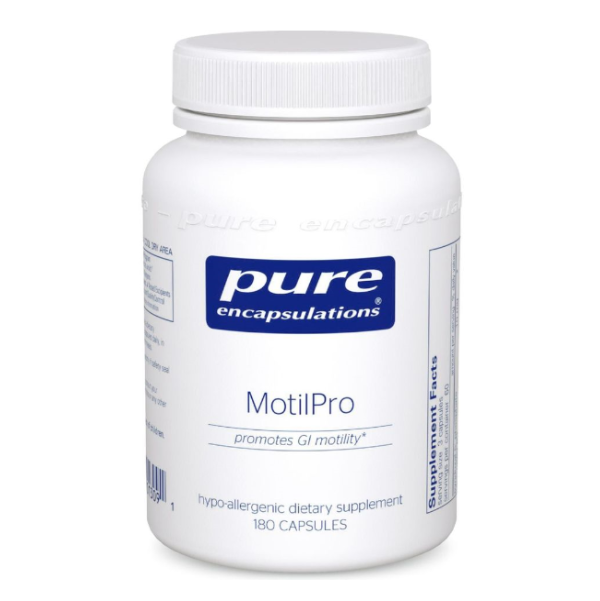
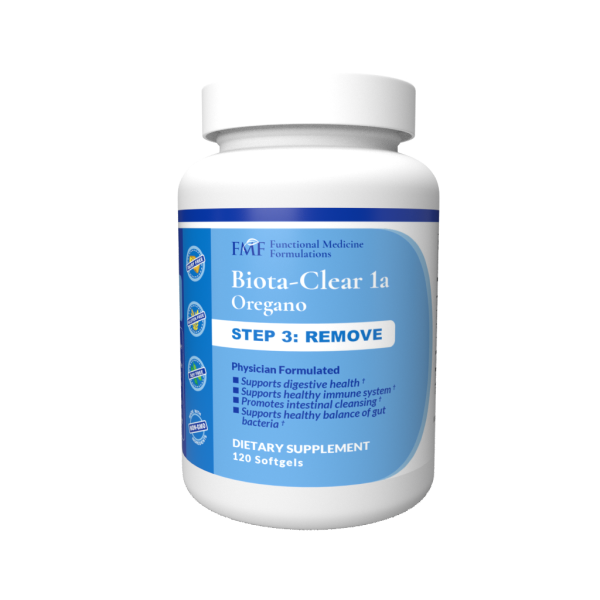
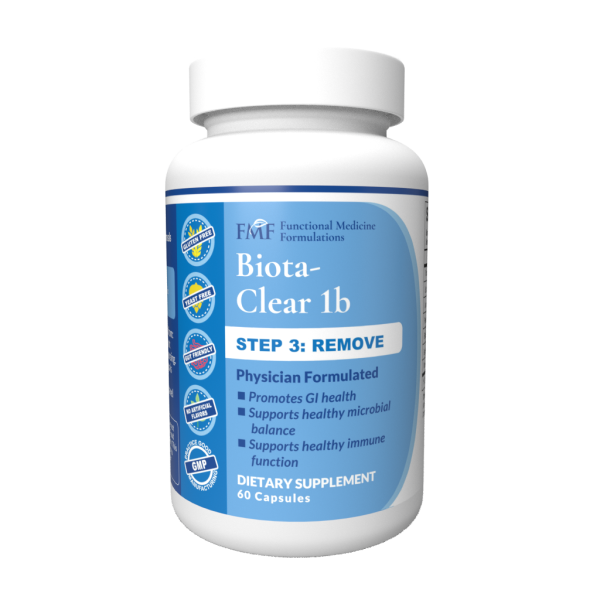
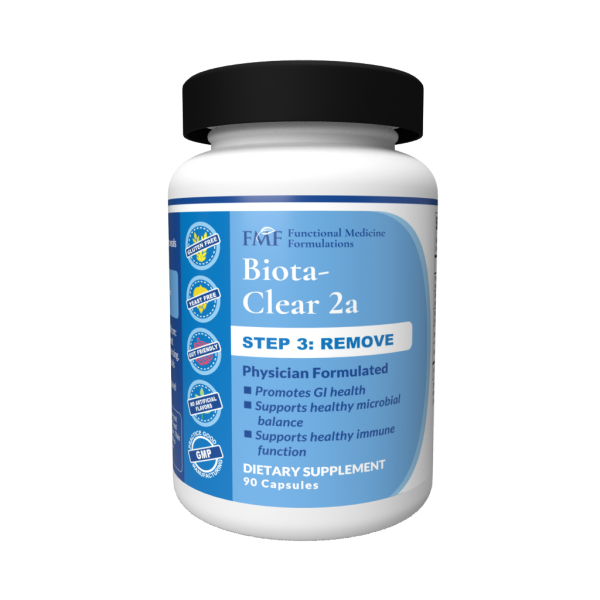
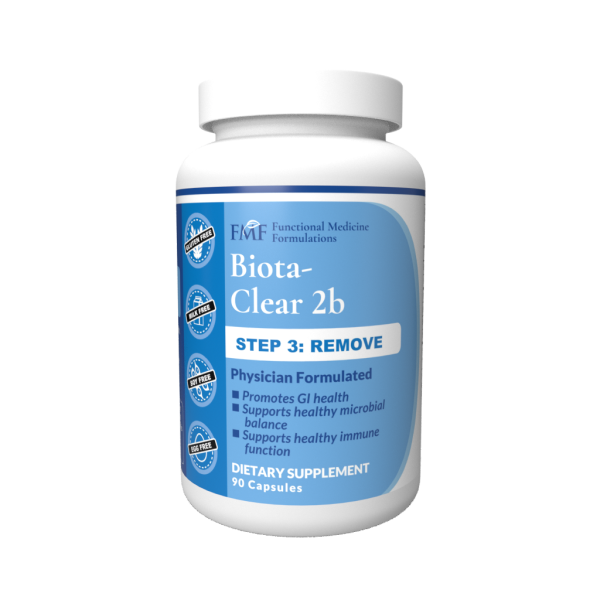
Discussion
I care about answering your questions and sharing my knowledge with you. Leave a comment or connect with me on social media asking any health question you may have and I just might incorporate it into our next listener questions podcast episode just for you!